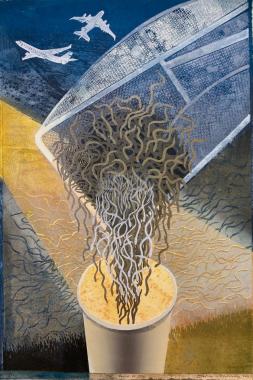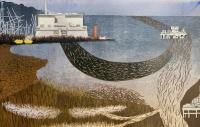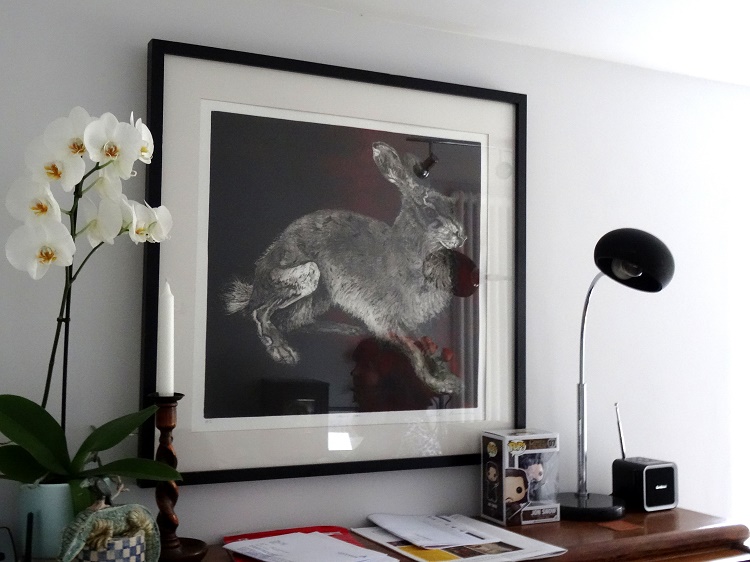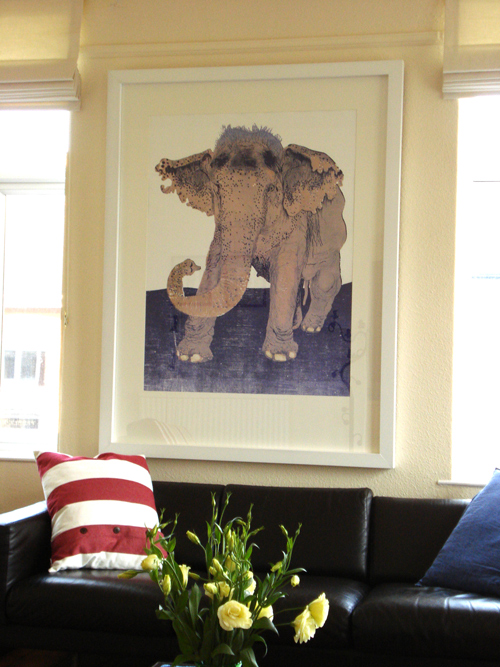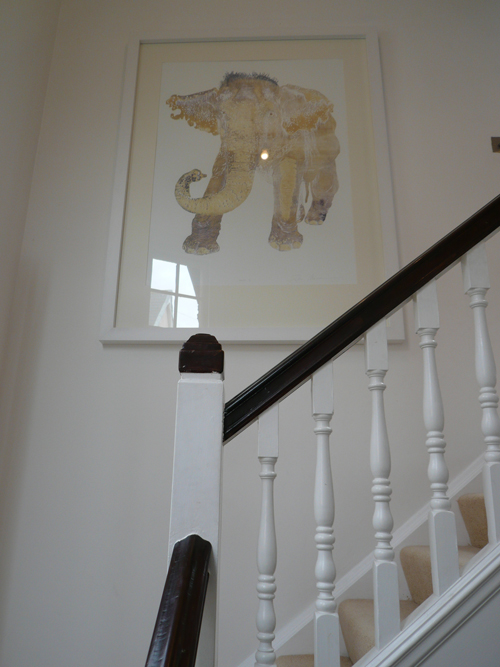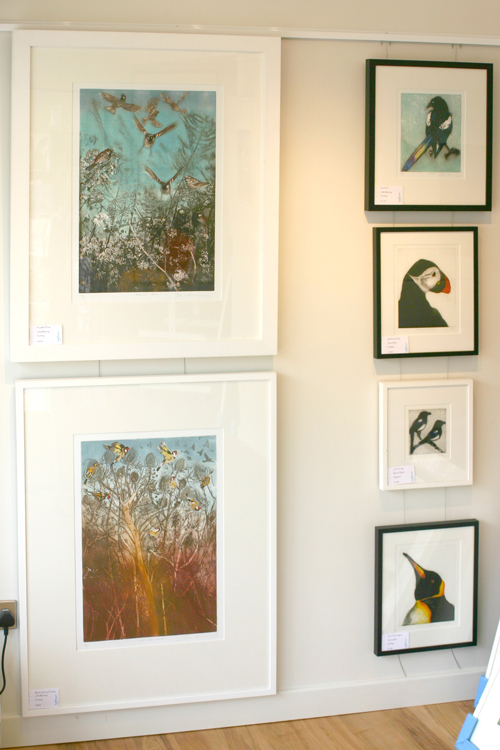The Greed of Man by Julia Manning RE
Product details
- Title
- The Greed of Man
- Artist
- Julia Manning RE (i)
- Medium
- Linocut (i)
- Numbered
- /6
- Size (WxH)
- 75 x 50cm
- Framed
- No
- Ref. No
- 24588
There are dip net fisheries for glass eels, in estuaries draining into the Bristol Channel, in particular from the Rivers
Severn and Parrett. The rivers draining out of Western France have similar fisheries.
The apparent contradiction in retaining a fishery for a critically endangered species seems obvious, however the
majority of the English glass eel catch is stocked into rivers around Europe to fulfil Eel Management Plan stocking
objectives. This is a conservation management measure which takes advantage of the large numbers of glass eels
arriving into the funnel of the Bristol Channel, to be re-distributed into countries with poorer glass eel runs.
This highly regulated fishery also contributes valuable catch data to help monitor the stock and has a high heritage
value, being a traditional capture method.
However in the late 90s into the 2000s there was a surge in demand for glass eels which drove the price that the
fishermen received to more than £500/kilo. This demand was driven by large eel farms in the Far East.
There is now a ban on exporting European glass eels outside of Europe but smuggling this precious cargo has
become a multi-million pound industry. Organized gangs use ‘safe’ routes to pass from country to country across
Europe. These criminals divide the eels into plastic bags which are then placed in hold luggage and flown by air to
Asia.
Europol has had many high profile convictions for this crime but estimated that in 2017/18 as much as 100 tonnes of
European glass eels (some 350,000,000 animals) were being illegally trafficked to Asia from Europe.
